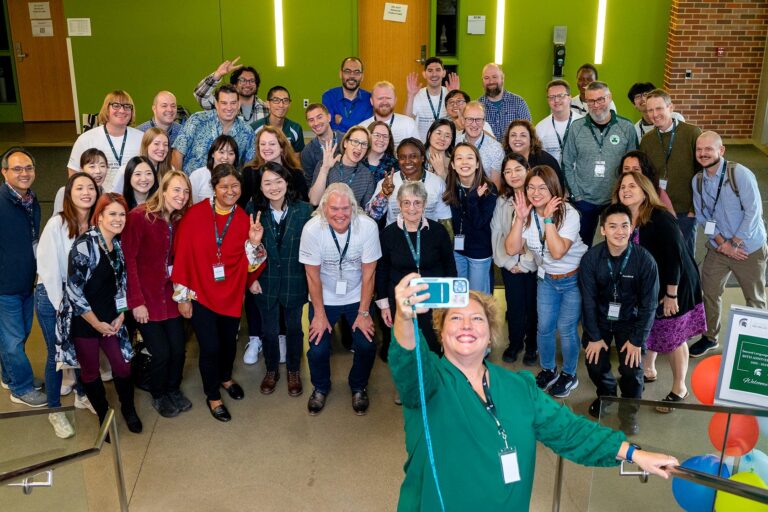It has been difficult to write for the public in the months since posting the Open Letter to the College of Arts & Letters in the wake of the survivor impact statements that are transforming Michigan State University.1 Part of the difficulty is what my thoughtful #SpartanDean colleague, Prabu David, emphasized when he wrote that it is challenging to find the right words for our current situation. But also, it has been difficult to convey to a broader public the intense interpersonal work we are doing in the College to create the culture change we need.
At our Fall 2017 faculty meeting, we focused on attentive listening, critical discernment, and ethical imagination as the core habits of the liberal arts education we seek to weave into the fabric of the University. Over the last few months, we have sought to put these habits into more intentional practice as we begin to imagine a way forward in response to what has happened here at Michigan State.

The commitments my Dean colleagues made to one another in our January 2018 letter to the Board of Trustees articulates the values that must shape this response. We said we would …
“foster and protect a culture that is transparent, open, trusting, and safe;”
“continuously cultivate leadership through caring and accountability;”
“empower everyone to be fully engaged in a community that is inclusive and equitable.”
These are the values I have always sought to put into practice as an academic leader. Yet, in reflecting upon what has happened here and during my time as a faculty member and administrator at Penn State, I am more aware than ever of the chasm that exists between the commitments for which we stand and the reality we experience. Where the culture of higher education should be caring, accountable, and equitable, it is too often self-centered, domineering, and unjust. And worse, the mechanisms by which we measure and reward individuals and institutions too often reinforce a toxic culture that erodes trust and impoverishes our work together.
This must change, and enacting that change is the long and difficult work ahead.
That work begins with critical self-reflection and ethical candor. It takes time and requires us to resist the temptation to put the difficult truths we are facing behind us. If we are honest with ourselves, we will recognize in the trauma of the moment the unsettling of unjust and inequitable structures that must be interrogated and redressed.
This requires each of us who has some power to effect change — whether you are a student or a member of the staff, a professor, an alum, or an administrator — to put your effort, your influence, and your weight on the side of creating a more trusting and just academic community.
My #SpartanDean colleague, Ron Hendrick, put it this way at his 2018 Agriculture and Natural Resources Luncheon address:
“…it won’t matter how good we are here at MSU, if you are not willing and able to use your position, privilege, and power to make a difference for others as well.
These connections represent our better selves — when we acknowledge them, we are more vulnerable, uncertain, unsure.
More importantly, though, we are more authentic, genuine, and real.”
When we commit ourselves in our daily interactions with one another to being more vulnerable and more genuine, we nourish the roots of a culture of trust.
Over the past few months, I have seen a commitment to candor break calcified habits of distrust in a program meeting; I have heard our staff speak honestly about the corrosive effects of micro-aggression and implicit bias; I have witnessed a group of angry and disappointed alumni support one another and refocus their attention on the core academic mission of the University; I have admired the courage of our undergraduate and graduate students as they advocate for the just community they expect and deserve; and I have felt my own willingness to acknowledge failure open new possibilities for more trusting relationships with my colleagues.
This is the work we must now undertake if we are to cultivate a culture of trust at the heart of our academic community. Let practices of care, accountability, and equity empower us to use our position and privilege to support our colleagues — students, staff, faculty, and alumni — in their efforts to make meaningful contributions to this fragile and broken world.
- Thanks to Valerie Long, Kimberly Popiolek, Ryan Kilcoyne, Sonja Fritzsche, Bill Hart-Davidson, Ron Hendrick, and Prabu David for their wise and insightful feedback on versions of this essay.


